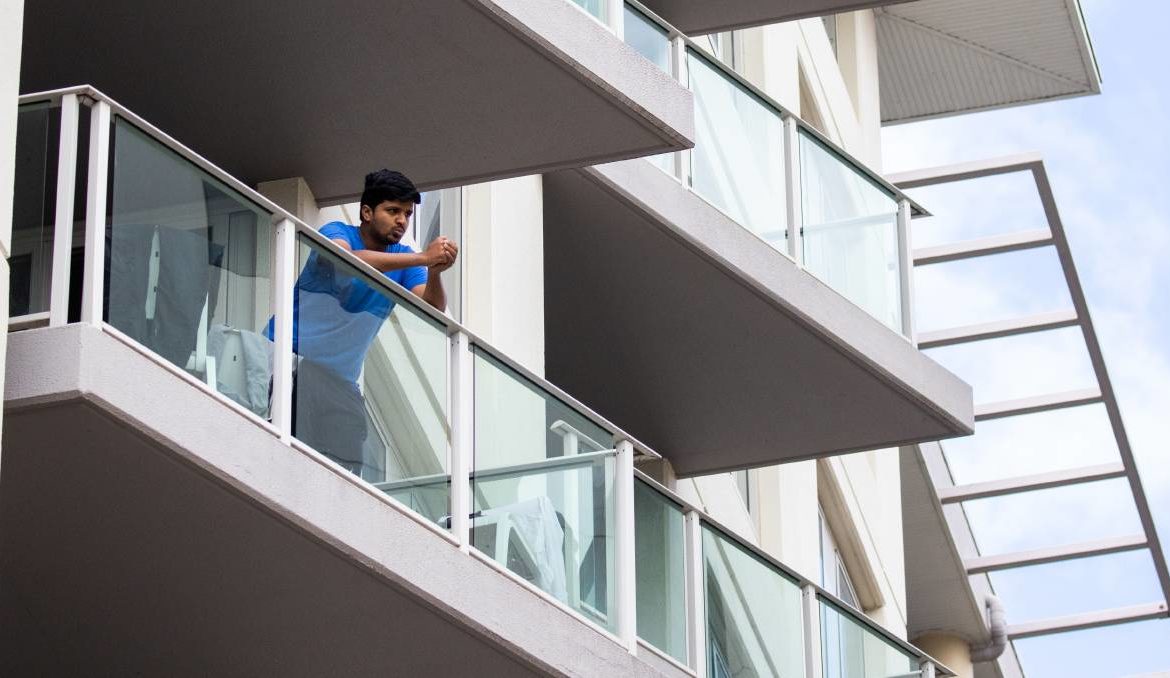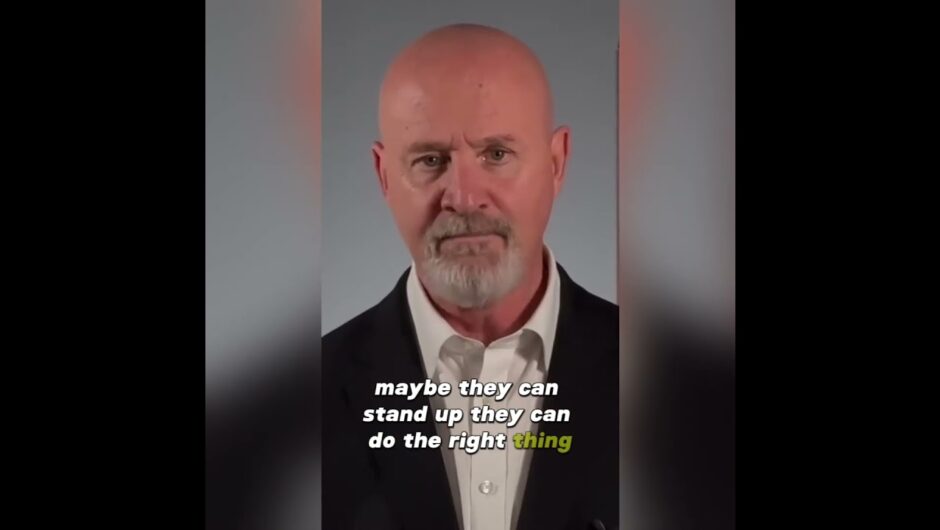coronavirus, pacific suites, hotel quarantine, canberra, covid-19, coronavirus
Those on the late or early shift, the cyclists or runners and the night wanderers who’ve passed the Pacific Suites hotel on Northbourne this last fortnight might have gazed through the glass into the fluorescent-lit lobby to see a solitary figure, reclining in likely boredom while the midnight hours tick by. The police officer on duty is responsible for holding guard throughout the night. He’s there to ensure the 166 returning Australian citizens and permanent residents that arrived on the repatriation flight from India on February 8 stay safe inside their beds. Upstairs, on the fourth floor, Khaled Al-Murtuza is wrestling with sleep that doesn’t come easily, anxious in this transition to the home he has fought for over the good part of a year. “I haven’t ever lived alone and I am not used to sleeping by myself at night,” Mr Al-Murtuza says. “Even in Sydney someone else was at the house at all times, so I am a little bit scared.” Mr Al-Murtuza had been stuck in India since an accident during what was supposed to be a month-long trip visiting family in October 2019. A passing wheelchair snapped his Achilles tendon while he pushed his grandma’s wheelchair through a lobby, leaving him bed-bound even before coronavirus hit. The Sydney resident is part of a cohort in quarantine ranging from babies to grandparents. More than one-third of the group are children, the eldest is 85. Of those people, 18 are returning Canberra residents. None tested positive in the first round of COVID-19 tests. Stuck to the fridge door inside Mr Al-Murtuza’s temporary accommodation is an ACT Health pamphlet suggesting activities to keep his spirits up. It’s after 11am this week when he decides it’s time to enact number 13: “Let the sunshine in.” Mr Murtuza agrees it’s probably time to get out of bed. At 3.45pm it becomes clear he’s skipped number 2 as well, “Maintain a routine”, when the Sunday Canberra Times’ photographer rouses Mr Al-Murtuza once again from his sleep. While “Journaling” (number 1) “Mindfulness” (number 3) and “Online exercise classes” (number 4) didn’t factor in his day, Mr Al-Murtuza has been inadvertently practising “Self-care and Self-compassion” (number 14) by busying himself with “Social Connection” (number 7). “I haven’t seen a human being for the last nine days – I don’t know how a human being looks like, I don’t know how a human being smells, I don’t know how a human being senses, I don’t know what happens when I touch a human being – I’m very curious,” he half-jokes. In lieu of physical contact, Mr Al-Murtuza has taken it upon himself to help boost morale among the hundred or so in quarantine who’ve joined the group’s WhatsApp chat. “I’m just cracking jokes and trying to make sure everyone’s all right and everyone’s laughing. I understand that my situation is difficult, but others could be worse too,” he says. Several times a day, a knock at the door will signal a delivery has arrived – and after waiting a few minutes for the deliverer to disappear, Mr Al-Murtuza can don his mask and collect his groceries or takeaway meal from the corridor. The guest have been provided with $300 to spend on fresh produce and groceries at the Red Baron store in Symonston, as well as $60 to spend at Deliveroo. READ ALSO: Despite the daily reminder of number 8 – “Food choices matter” – Mr Al-Murtuza has failed to “choose some healthy options and make a menu plan for when your time in quarantine is over”. “I haven’t really cooked anything,” he says. “The only thing I tried was yesterday I tried to boil eggs, which I’d never boiled in a microwave oven, and the eggs burst.” COVID-19 response director Rebecca Hundy said many of the returning Australians had recently experienced hardship, such as suffering an illness or losing a loved one back in India. “The whole process of getting on a flight and having to go into quarantine can be quite distressing in itself. A lot of them come in and they are just exhausted,” Ms Hundy said. COVID-19 mental health and wellbeing adviser Dr Sarah Miller said hotel quarantine has been shown to trigger mental health concerns in those who’ve experienced trauma. Those in the group displaying concerning symptoms are being closely monitored. The 166 recently arrived Australians are due for release on Monday.
/images/transform/v1/crop/frm/fin3bsvV4zEfEw92kZxvs/3b7f2b02-3332-4221-848f-09293927a5a8.jpg/r6_267_4981_3078_w1200_h678_fmax.jpg
Those on the late or early shift, the cyclists or runners and the night wanderers who’ve passed the Pacific Suites hotel on Northbourne this last fortnight might have gazed through the glass into the fluorescent-lit lobby to see a solitary figure, reclining in likely boredom while the midnight hours tick by.
The police officer on duty is responsible for holding guard throughout the night. He’s there to ensure the 166 returning Australian citizens and permanent residents that arrived on the repatriation flight from India on February 8 stay safe inside their beds.
Upstairs, on the fourth floor, Khaled Al-Murtuza is wrestling with sleep that doesn’t come easily, anxious in this transition to the home he has fought for over the good part of a year.
“I haven’t ever lived alone and I am not used to sleeping by myself at night,” Mr Al-Murtuza says.
I haven’t seen a human being for the last nine days.
Khaled Al-Murtuza
“Even in Sydney someone else was at the house at all times, so I am a little bit scared.”
Mr Al-Murtuza had been stuck in India since an accident during what was supposed to be a month-long trip visiting family in October 2019. A passing wheelchair snapped his Achilles tendon while he pushed his grandma’s wheelchair through a lobby, leaving him bed-bound even before coronavirus hit.
The Sydney resident is part of a cohort in quarantine ranging from babies to grandparents. More than one-third of the group are children, the eldest is 85.
Of those people, 18 are returning Canberra residents. None tested positive in the first round of COVID-19 tests.
Stuck to the fridge door inside Mr Al-Murtuza’s temporary accommodation is an ACT Health pamphlet suggesting activities to keep his spirits up.
More than 160 Australians quarantined at the Pacific Suites in Canberra will be subject to a second COVID-19 test this weekend. Picture: Keegan Carroll
It’s after 11am this week when he decides it’s time to enact number 13:“Let the sunshine in.” Mr Murtuza agrees it’s probably time to get out of bed.
At 3.45pm it becomes clear he’s skipped number 2 as well, “Maintain a routine”, when the Sunday Canberra Times’ photographer rouses Mr Al-Murtuza once again from his sleep.
While “Journaling” (number 1) “Mindfulness” (number 3) and “Online exercise classes” (number 4) didn’t factor in his day, Mr Al-Murtuza has been inadvertently practising “Self-care and Self-compassion” (number 14) by busying himself with “Social Connection” (number 7).
“I haven’t seen a human being for the last nine days – I don’t know how a human being looks like, I don’t know how a human being smells, I don’t know how a human being senses, I don’t know what happens when I touch a human being – I’m very curious,” he half-jokes.
In lieu of physical contact, Mr Al-Murtuza has taken it upon himself to help boost morale among the hundred or so in quarantine who’ve joined the group’s WhatsApp chat.
“I’m just cracking jokes and trying to make sure everyone’s all right and everyone’s laughing. I understand that my situation is difficult, but others could be worse too,” he says.
Several times a day, a knock at the door will signal a delivery has arrived – and after waiting a few minutes for the deliverer to disappear, Mr Al-Murtuza can don his mask and collect his groceries or takeaway meal from the corridor.
The guest have been provided with $300 to spend on fresh produce and groceries at the Red Baron store in Symonston, as well as $60 to spend at Deliveroo.
“I haven’t really cooked anything,” he says. “The only thing I tried was yesterday I tried to boil eggs, which I’d never boiled in a microwave oven, and the eggs burst.”
COVID-19 response director Rebecca Hundy said many of the returning Australians had recently experienced hardship, such as suffering an illness or losing a loved one back in India.
“The whole process of getting on a flight and having to go into quarantine can be quite distressing in itself. A lot of them come in and they are just exhausted,” Ms Hundy said.
COVID-19 mental health and wellbeing adviser Dr Sarah Miller said hotel quarantine has been shown to trigger mental health concerns in those who’ve experienced trauma. Those in the group displaying concerning symptoms are being closely monitored.
The 166 recently arrived Australians are due for release on Monday.







